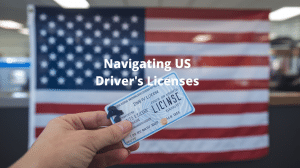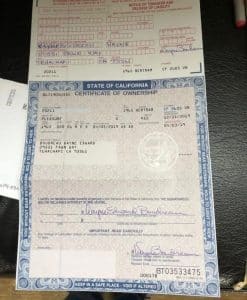Stuck with an expired Texas driver’s license? You’re not alone. Many find this process confusing and time-consuming. Let me guide you through some simple steps to renewal. From required paperwork to avoiding common pit falls, this article has you covered. Read on and get back on the road in no time!
Renewing your Texas driver’s license is a crucial task that ensures you maintain your legal driving privileges. The process, while straightforward, requires attention to detail and timely action. Failing to renew on time can lead to unnecessary complications and potential legal issues. This guide will walk you through the renewal process, highlighting common pitfalls to avoid.
Eligibility Requirements
Age and Residency Criteria

To renew your Texas driver’s license, you must be a current Texas resident. There’s no upper age limit for renewal, but drivers aged 79 and older must renew in person and may need to take additional tests.
Validity Check for Current License
Ensure your current license is still valid or has expired within the last two years. If it’s been more than two years since expiration, you’ll need to apply for a new license instead of renewing.
Preparation Steps
Documents Needed
Gather the following documents:
- Your current Texas driver’s license
- Proof of U.S. citizenship or lawful presence
- Two documents proving Texas residency
- Social Security card or proof of Social Security Number
Online Account Setup
If you plan to renew online, create an account on the Texas Department of Public Safety (DPS) website. This will streamline the process and allow you to track your renewal status.
Online Renewal Process
Step-by-Step Guide

- Visit the official Texas DPS website
- Log into your account or create one if you haven’t already
- Select the “Driver License Renewal” option
- Verify your personal information
- Answer eligibility questions
- Pay the renewal fee
- Submit your application
Special Considerations for Online Method
Online renewal is typically available if you renewed in person last time and meet certain eligibility criteria. Be aware that you may need to renew in person if you have specific medical conditions or if your license requires an updated photo.
In-Person Renewal Process
Where to Go
Visit your local Texas DPS office. Some offices offer same-day service, while others require appointments. Check the DPS website for location information and to schedule an appointment if necessary.
What to Expect at the DMV
Prepare for the following steps:

- Document verification
- Vision test
- Possible written test (for certain age groups)
- New photo taken
- Fee payment
- Temporary license issuance
Common Mistakes to Avoid
Incorrect Information
Double-check all personal information on your application. Errors can lead to delays or even rejection of your renewal.
Missed Deadlines
Don’t wait until the last minute. Start the renewal process at least six weeks before your license expires to avoid any lapse in your driving privileges.
Poor Form Completion
When filling out forms, use black ink and write legibly. Incomplete or illegible forms can result in processing delays.
Fees and Payment
Cost Breakdown
As of 2023, the standard renewal fee for a Texas driver’s license is $33 for a six-year license. Fees may vary for different license classes or shorter renewal periods.
Payment Methods Accepted
The DPS accepts the following payment methods:
- Credit cards (Visa, MasterCard, Discover, American Express)
- Debit cards
- Cash (in-person only)
- Checks or money orders (made payable to the Texas DPS)
What to Do Post-Renewal
Checking New License Status
After renewing, you can check your license status online through the Texas DPS website. Your new license should arrive by mail within 2-3 weeks.
Updating Related Documents
Once you receive your new license, update any documents or accounts that may reference your driver’s license number or expiration date, such as vehicle insurance policies or employer records.
FAQs
Renewal Notice Never Received?
“I never got my renewal notice. Can I still renew my license?“
Yes, you can still renew your license even if you didn’t receive a notice. The renewal notice is a courtesy reminder, not a requirement for renewal.
Can You Renew with Outstanding Tickets?
“Can I renew my license if I have unpaid traffic tickets?”
Generally, outstanding tickets won’t prevent you from renewing your license. However, if your license has been suspended due to unpaid tickets, you’ll need to resolve those issues before renewing.
Conclusion

Renewing your Texas driver’s license doesn’t have to be a daunting task. By following these guidelines and avoiding common mistakes, you can ensure a smooth renewal process. Remember to start early, gather all necessary documents, and double-check your information. Keeping your license current is not just a legal requirement; it’s an essential part of responsible driving. Take action today to maintain your driving privileges without interruption.






